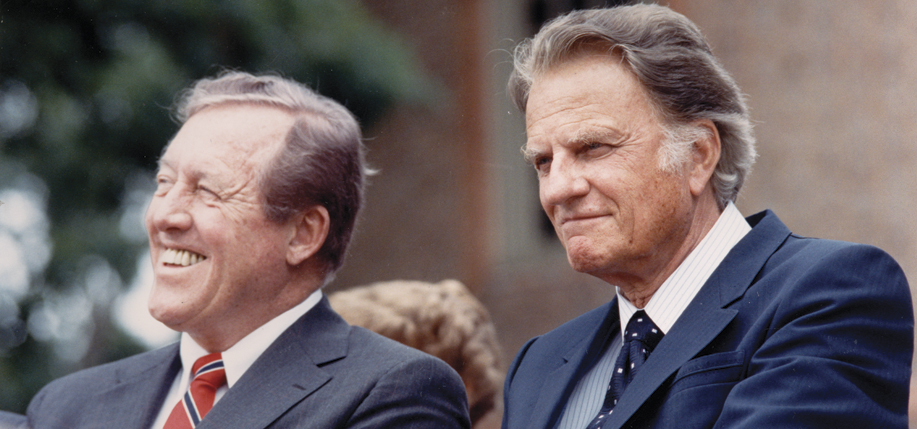William J. Flynn presented the following remarks at the First Liberty Forum in New York on November 15, 1988.
℘℘℘
On June 25, 1998, leaders in government, religion and business signed the Williamsburg Charter in Colonial Williamsburg. I felt privileged to be one of them.
The Williamsburg Charter is an historic document that reaffirms the first sixteen words of the Bill of Rights. “Congress shall make no law respecting an establishment of religion or prohibiting the free expression thereof.” We stand in awe of these men of Williamsburg who, more than 200 years ago, inspired these words. We salute their special genius. We admire their courage, for these sixteen words were to change, in a most remarkable way, the future course of history, both of our nation and the world.
People were to be free to pursue, without interference, those things about which they felt most deeply – those elemental questions of conscience that give meaning to life. Yet, the affirmation of religious freedom would have meant nothing without the protection of a strong, abiding sense of mutual responsibility for its preservation. We must always remember that, in the words of the Charter, “Rights are best guarded when each person guards for all others those rights they wish for themselves.”
It is no accident that Mutual of America was the major corporate sponsor of the “First Liberty Summit” at Williamsburg and of this “First Liberty Forum” in New York. It is part of our continuing commitment to those forces in life dedicated to building a richer, better world. Nothing could have been more fitting than for us to play a supportive and enabling role in this reaffirmation of the First Liberty. At a time when our spiritual values are being tested perhaps more severely than ever before, we concluded that it would be most timely and appropriate to reaffirm our belief in and dedication to preserving the true meaning of the First Amendment.
There are some commitments which one makes out of obligation, some out of position and some out of choice. There are other commitments which are thrust upon one by the weight of history and heritage. For me, religious liberty and freedom of conscience is such a commitment.
I speak as a Catholic of Irish heritage whose father was from the north and whose mother was from the south. And I am deeply saddened when I see the violence that divides neighbors and the bitterness that hardens the soul.
I speak as a father who has marveled at the birth of his children, who has delighted in watching them grow up, who has lived to see his children’s children playing on a summer day, and who – because of these precious, intimate experiences – cannot help but wonder about the world we will hand on to the generations to come. Will it be safe and sane or ugly and violent? The answer depends to a great degree on our willingness to commit our energies to searching for ways to live together in spite of deep differences.
I speak as an American for whom freedom is not only an ideal to cherish, but a responsibility to act upon. In a world in which the contrasts are all too apparent, in our nation where differences too often breed bigotry, I feel the weight of that responsibility.
In 1987, Mutual of America sponsored a film entitled, “Courage to Care,” a film about individuals who in quiet ways protected those at risk during the Holocaust. They were not born heroes nor did they view themselves as heroic. They did assume the responsibilities of their convictions.
We must do the same. We must uphold and renew that which makes us caring persons, striving for a just nation and a peaceful world.
Mutual of America is proud to have been part of the significant event of bringing the Williamsburg Charter to pass. I can’t remember a time when my deepest personal convictions and most important professional responsibilities converged so perfectly. I am proud to join the other signers of the Charter in reaffirming religious liberty and freedom of conscience, which is so central to who we are, so vital to our future, so needed in the world. The successful celebration of the Williamsburg Charter may be behind us, but its purpose is always before us and we look forward to spreading its message. I ask you to join me in affirming as your own the Summary of Principles that we commend to you today. ♦


Leave a Reply